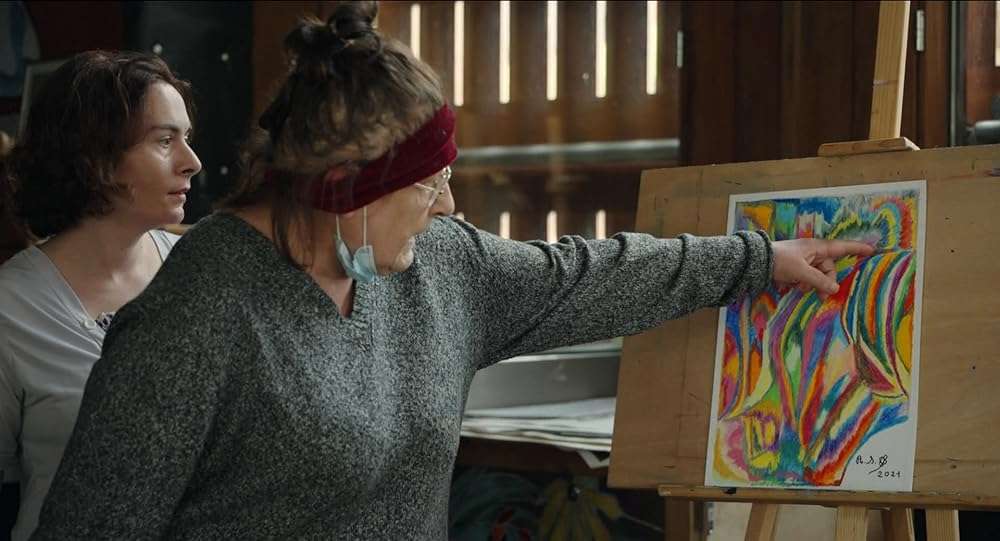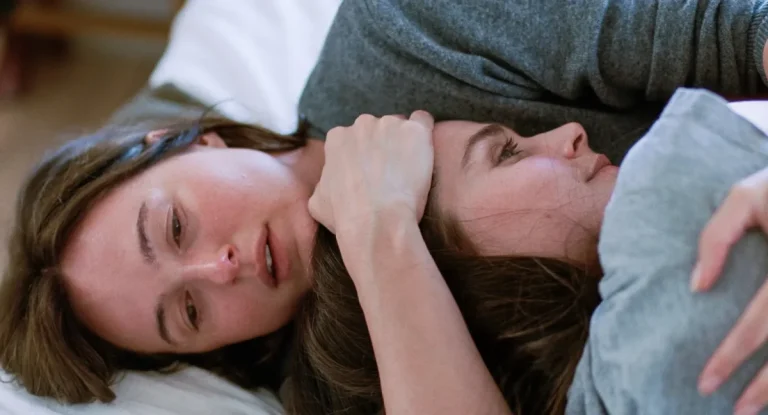There’s a quietly observed non-invasiveness that permeates Nicolas Philibert’s latest documentary, On the Adamant (Original Title: Sur l’Adamant.) Characters are allowed to just be; the viewer is invited to hang out with them, be curious, and engaged, and care for them and what they have to say beyond their projections. Philibert is acutely conscious of constructing human subjects and the requisite dignity and non-explanatory interiority that they must reflect. There are flickers of backgrounds that pop up and punctuate as the characters go about their daily routines, but the director stays alert to not siphoning the film’s thrust of argument from these points.
Revolving around a psychiatric daycare unit that floats on the banks of the Seine, the film is a respectful, unfussy portrait of this unconventional structure of care, where its attendants and caretakers treat patients with patience, attention, and remarkable consideration. There’s little condescension or dismissal but an attuning to their desires, regrets, and loneliness. There are various recreational sessions held, ranging from art therapy classes to movement-oriented ones. Philibert zeroes in on how the patients express themselves through painting and music.
After they present their paintings, they are called upon to discuss them with everyone. Opinions are shared, and inferences are gently put forward. A man presents a sketch of two girls whom he calls his daughters. Another woman paints a praying mantis with a bowtie. Pictures of femininity and vulnerability emerge.

People discuss friendships that have kept them afloat, relationships that haven’t survived the awareness of their unwellness. When a woman nudges the director and presumably his assistant/DP about themselves and gives glimpses of a livelier past, a spare, powerfully poignant understanding of abandonment and emotional desolation comes through. Another woman confesses how earlier she was barely able to communicate with her own son, who then had to be transferred to the care of a foster family and since has been with them. She is now on better terms with him, whereas previously, her conversations with him had to be overseen and guided by an authority.
There’s a palpable underlayer of sombreness to On the Adamant, but Philibert couches it in ample doses of humor and a scattering of levity without sacrificing any requisite complexity of touch and perspective. The director knows how to listen to the people and honors their stories, fantasies, and the many misgivings they harbor.
One person airs his grudges against Wim Wenders for extensively drawing from the story of his bond with his brother in Paris, Texas, and never acknowledging it. Another sneakily asserts that everyone here are actors without realizing it. There’s also a film club that is planning a ten-year celebration with a week of screenings. Patients will themselves introduce the films. Philibert essentially foregrounds what a person says, that the facility’s caretakers critically emphasize the need for talking and sharing, not just medicinal interventions.
The camera frequently shifts to capturing snapshots of the world and life that goes on outside this boat. Philibert favors an objectivity of engagement while edging to the characters. There are no drawn-out attempts to situate the threads in some sort of overarching framework but a firm reaffirmation of a kind approach. The director also sharply evokes where this approach can chafe at itself and be warier than what it’s ideally advocated. The film refrains from staying too long and close to any of its characters. This decision will divide viewers.
I admit I did get distracted in places by the film’s tendency to jerk away and shift focus right when a character is fully starting to articulate herself or himself. Eventually, however, the style grew on me, as Philibert lightly makes his case for this method of care that is more trusting in granting relative freedom to its people. His understated empathy continually shines through. Adopting a pose of mundanity, the film is careful not to wheedle from its characters a well of effect that will sentimentalize; occasionally, the camera settles on the patches of sunlight shimmering through the glass panels. It becomes this embodiment of an alternative space that empowers its patients in no small measure.
They are encouraged to assist in the day-to-day running of the in-house café, restoring a sense of agency and action. Philibert doesn’t resort to any aesthetic flourishes, intently keeping the style stripped and bare yet succeeding in creating a warm, restfully immersive panoply of perspectives.







![Nocturnal Animals [2016]: Reality meets Fiction](https://79468c92.delivery.rocketcdn.me/wp-content/uploads/2017/02/nocturnalanimals1-768x511.jpg)
